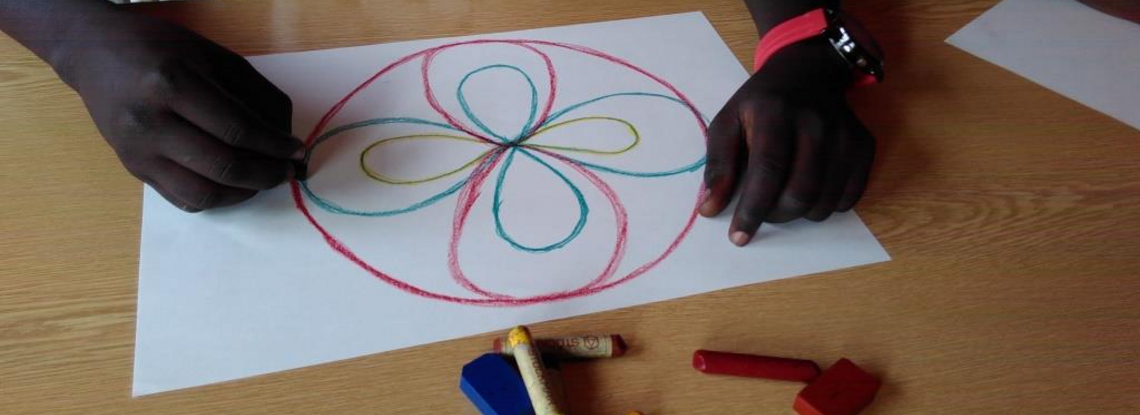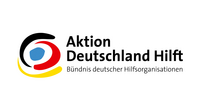
Germany since 2015
"ankommen_weiterkommen" with Aktion Mensch
For over ten years now, the “Friends of Waldorf Education” have been working with emergency and trauma pedagogy in Karlsruhe, Germany and all over the world.
Aktion Mensch, the largest private funding agency in Germany, will now be supporting this work in our city for the next two years and is financing the project “ankommen_weiterkommen” (arrive_progress). As a part of the project, experiential and theatre educational offerings taking into account trauma pedagogical aspects will be made for unaccompanied minor refugees at the Parzival-Centre outside of lesson time. Karlsruhe non-refugee adolescents will be included in the offerings, which allows for an intercultural exchange and joint learning processes, and promotes integration. The daily offerings address the difficulties the traumatised refugees have, gives them structure and safety, and supports them in processing their experiences. Work shadowing, as part of continuing education courses for emergency pedagogy, and publications about the project’s progress, will make the project work accessible to the professional public and thereby transferable.
The goals of the project are personality building, social learning, career orientation, as well as intercultural exchange between all participants.
On Tuesday, April 25th, 2017 at 11 o’clock at the Parzival-Centre, a ceremonial opening event for “ankommen_weiterkommen” will take place.
In addition to project participants, we are expecting representatives from the organisation Aktion Mensch, employees of various non-governmental organisations as well as active persons of social- and youth institutions in Karlsruhe and the surrounding area.
What remains, is the encounter
For ten years now, the Friends of Waldorf Education have been carrying out emergency pedagogy missions after catastrophes in crisis regions. Global political events and the flight of many people to us in Germany has created a need for the stabilizing and healing pedagogical work that is emergency pedagogy. This includes offerings for children in shelters and entrance classes for unaccompanied minors as well as training and advising for people who work with refugees.
Emergency Shelter Karlsruhe, Autumn 2015: A colleague said: “I have worked with children in Iraq and on the flight route, now these children are here. Many things are similarly improvised; we work on the floor, between tents, without rooms. But what remains is the encounter. Be it through movement, painting, felting, or through words, gestures, eye-contact, or touch.”
The children know us already, the fetch the others and then it gets started. A song, rhythmic clapping, then movement games, hopping, or painting, kneading clay, or felting. These returning elements give the children orientation and structure.
At play, they are happy and relaxed, then again highly concentrated, for example while balancing. Later the parents thank us and we can sense how happy they are, that we play with their children and bring them joy. Something, which they cannot or only with much difficult do themselves.
Emergency Pedagogy Competence Centrum Karlsruhe: Professionals in the region and throughout Germany also request our trauma-pedagogical knowledge and experience from many acute missions. Initiatives from other cities ask for continuing education courses or advising over the telephone, we organize conferences and seminars about flight-trauma-pedagogy. Also the need for new topics becomes greater, because in many areas the work has reached a second phase. After the great stress is over, deeper, also painful layers can be shown, which were previously avoided and now want to be felt. Gentleness and a focus on the already present resources of the individual are needed; a trauma sensitive pedagogy, which strengthens the whole person in their health.
Parzival-Center Karlsruhe: Here 160 adolescents with flight histories are schooled in 9 classes. Our emergency pedagogy work receives at first skeptical glances—everything, which isn’t chalkboard and writing is not seen as learning. But after a few days, some of the adolescents ask themselves for play and artistic elements. 45 minutes of form drawing in the entrance class: The (13 to 17 year old) adolescents strive for continuity and aesthetic in the line direction: How do I draw a circle or a figure eight “at once”? How does the circle become round and how do you make a cross with the figure eight? After a few times, the circle becomes increasingly more “beautiful” or the cross point of the figure eight increasingly more “in the middle”. They experience: In every moment I can do something NEW. Strengthened in their will and their self-efficacy the young men leave this class period. One expresses, that it did him good; he is so relaxed and learned something completely new. And just on the side, the connection of right and left in this creative process helped to make their minds more physiologically ready to learn and take in new information.
The process of successful integration needs from us all:
Being there, sometimes differently than before, so that also the other person can be totally there. Being with me and with you in the space between, without judging, in the mental present. This effort is rewarded with the joy of living people—an encounter.


